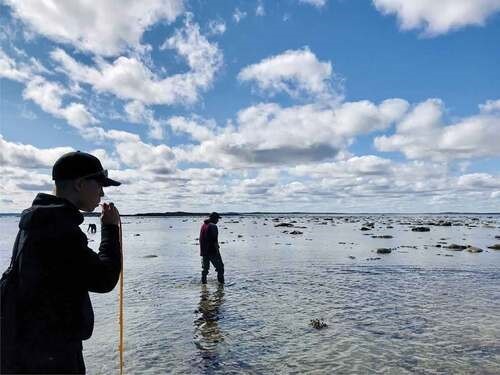Arctic and Alpine Social-Ecological Systems: Sustainability and Resilience

The inhabitants of polar, subarctic, and alpine regions rely on both marine and terrestrial ecosystem services (i.e., the benefits humans receive from the natural world) including provisioning, supporting, cultural, and regulating services. However, these face multiple pressures, from climate change to industrial and other social impacts. In the Arctic, global warming is particularly significant, occurring up to four times more rapidly than elsewhere on the planet. The effects of these human-caused pressures cascade through polar and alpine social-ecological systems to ultimately have an influence human well-being.
Arctic and alpine communities share characteristics and challenges regarding how they are impacted by, and can respond to, these changes. They include low, often growing, human populations and geographical isolation where communities rely on national and international trade, but also on strong subsistence livelihoods. These regions benefit from unique biodiversity and wildlife, allowing deep socio-cultural connections to nature; through harvesting, fishing, and hunting, as well as mixed economies where subsistence and market-based activities, such as tourism, interact. Antarctica differs socially from Arctic and alpine regions in that humans ‘living’ there are attached to research stations. Some of Antarctica’s ecosystem services resemble those of the Arctic, as they are exposed to similar biophysical processes, and support human well-being globally.
Integrated research is needed to understand the rapid and complex changes affecting polar, subarctic, and alpine regions. This collection showcases contributions that address the underlying biophysical and social underpinnings of ecosystem services as well as ways to support resilience and sustainability in these regions, including the achievement of the United Nations Sustainable Development Goals (SDGs). There is an explicit focus on ecosystem services, such as country foods, fisheries, climate regulation, medicinal and genetic resources, and their connections to human well-being (including food security, health, revenue, social relations). Themes include but are not limited to: (1) the contributions to human well-being of ecosystem services in polar, subarctic, and alpine regions; (2) case studies that address the social-ecological, economic, or policy implications of achieving the SDGs in these regions; (3) improved methodological approaches for assessing (both quantitatively and qualitatively) ecosystem services and social-ecological systems in polar, subarctic, and alpine regions; and (4) studies that draw on multiple knowledge systems, including local and/or Indigenous knowledge.
Photo credit: Marianne Falardeau, 2021 Imalirijiit Science and Culture Land Camp.
Edited by
Marianne Falardeau(Université Laval, Canada)
Astrid Ogilvie(Institute of Arctic and Alpine Research, University of Colorado, U.S.A.; Stefansson Arctic Institute, Akureyri)
Martin Miles(NORCE/Norwegian Research Centre/Bjerknes Centre for Climate Research, Norway; INSTAAR, CU Boulder)